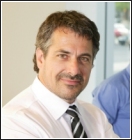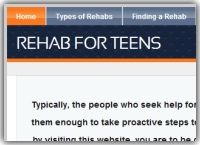 Greetings and happy 2013 to our site’s visitors, U.S. methadone clinics, suboxone physicians, and addiction treatment providers across the country! Methadone.US was successfully launched in 2011 and quickly developed surprising traffic to our website as many hundreds of individuals searched online daily for local opioid treatment services and discovered Methadone.US.
Greetings and happy 2013 to our site’s visitors, U.S. methadone clinics, suboxone physicians, and addiction treatment providers across the country! Methadone.US was successfully launched in 2011 and quickly developed surprising traffic to our website as many hundreds of individuals searched online daily for local opioid treatment services and discovered Methadone.US.
Our goal was to humanize opioid addiction treatment and to help educate the public on the value of methadone and suboxone, and to further legitimize opioid replacement therapy. This goal is being achieved every day as evidenced by our hundreds of thousands of visitors, numerous emailed comments & stories, and people taking our online opioid addiction assessment.
Methadone.US features individual pages for cities across the United States, and we are now providing a showcase featured spot at the top of every city page for local methadone clinics & suboxone doctors to list their services. If you are a treatment professional looking to reach and serve clients, then feel free to join Methadone.US and have your clinic or practice clearly profiled at the top of your city page. As an example, you can view two of our new additions here: Matrix Center in Wichita, KS and American Treatment Center in Newport News, VA.
Opioid addiction treatment is going mainstream. This is a good thing because it simply helps those suffering with addiction find the help that they need, and to begin the process of recapturing their quality of life. As Methadone.US enters its third year, we would like to thank all those who believe that addiction recovery is possible, and that methadone & suboxone are beneficial tools in that process.
Many people in our society, from all walks of life, are struggling today with a debilitating opioid addiction. They deserve help. They are ready for change and they need only to connect locally with good treatment services. Fortunately, the internet is making that connection more possible with every passing day. Thank you for visiting, and for supporting, Methadone.US in reaching that worthwhile goal.

 Follow
Follow

 Methadone.US has successfully educated and enlightened many thousands of online visitors over the last two years. Our goal has been to demystify & destigmatize opioid replacement therapy, and to highlight how methadone, suboxone, and other treatment interventions can give patients a new lease on life.
Methadone.US has successfully educated and enlightened many thousands of online visitors over the last two years. Our goal has been to demystify & destigmatize opioid replacement therapy, and to highlight how methadone, suboxone, and other treatment interventions can give patients a new lease on life. How doctors view methadone is becoming a hot topic. A friend recently informed me that the TV celebrity doctor, commonly known as Dr. Drew, was against methadone and had publicly made negative comments about the medication. I was disappointed to learn of this because Dr. Drew has a fairly large national audience who follow his opinion on medical matters. I then noticed that Dr. Jana Burson (a well-educated and experienced opioid addiction professional)
How doctors view methadone is becoming a hot topic. A friend recently informed me that the TV celebrity doctor, commonly known as Dr. Drew, was against methadone and had publicly made negative comments about the medication. I was disappointed to learn of this because Dr. Drew has a fairly large national audience who follow his opinion on medical matters. I then noticed that Dr. Jana Burson (a well-educated and experienced opioid addiction professional)  Teen drug abuse is a persistent problem in America, and unfortunately, is on the rise again. With recent State and Federal budget cuts, funding across the country for adolescent drug treatment has dwindled. There are far fewer drug rehab facilities today than there were just 5 years ago. Locating inpatient and outpatient teen rehab programs has become a challenge for parents and adults seeking local teen drug treatment resources.
Teen drug abuse is a persistent problem in America, and unfortunately, is on the rise again. With recent State and Federal budget cuts, funding across the country for adolescent drug treatment has dwindled. There are far fewer drug rehab facilities today than there were just 5 years ago. Locating inpatient and outpatient teen rehab programs has become a challenge for parents and adults seeking local teen drug treatment resources.


